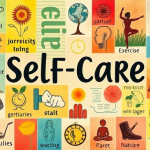
Why Meditation Is the Best Stress-Relief Tool You’re Not Using
The Science Behind Meditation and Stress Relief

Meditation has been studied for its impact on reducing stress and promoting relaxation. Research has shown that engaging in regular meditation practices can lead to decreased activity in the amygdala, the part of the brain responsible for processing stress and emotions. This reduction in amygdala activity is associated with lower levels of cortisol, the stress hormone, in the body, leading to an overall sense of calmness and well-being.
Furthermore, studies have demonstrated that meditation can actually change the structure of the brain. Consistent meditation practice has been linked to increased grey matter density in areas of the brain related to attention, self-awareness, and compassion. These structural changes support the idea that meditation can have long-lasting effects on reducing stress and improving mental health.
How Meditation Impacts the Brain
Meditation has been shown to have a profound impact on the brain’s structure and function. Studies have demonstrated that regular meditation practice can lead to changes in brain regions associated with emotional regulation, attention, and self-awareness. The amygdala, a part of the brain involved in the processing of emotions, has been found to have decreased activity in individuals who practice meditation regularly, indicating a potential reduction in stress and anxiety levels.
Furthermore, research suggests that meditation may promote neuroplasticity, the brain’s ability to reorganize and form new neural connections. This means that through consistent meditation, individuals may enhance cognitive abilities such as focus, memory, and problem-solving skills. Additionally, meditation has been linked to an increase in gray matter density in certain brain regions, suggesting a possible protective effect against age-related cognitive decline.
Benefits of Regular Meditation Practice
Regular meditation practice can have numerous benefits for both the mind and body. One of the key advantages is reduced stress levels. By engaging in meditation on a consistent basis, individuals can experience a sense of calmness and relaxation, helping to alleviate the day-to-day stressors that may accumulate.
Furthermore, regular meditation has been shown to improve focus and concentration. Through the practice of mindfulness and being present in the moment, individuals can train their minds to better focus on the task at hand, leading to increased productivity and efficiency in various aspects of life.
• Reduced stress levels
• Improved focus and concentration
In addition to these mental benefits, regular meditation practice can also have positive effects on physical health. Studies have shown that meditation can help lower blood pressure, improve immune function, and even reduce inflammation in the body. By incorporating meditation into a daily routine, individuals may experience improved overall well-being and better resilience against illnesses.
Moreover, regular meditation has been linked to enhanced self-awareness and emotional regulation. By tuning into their thoughts and emotions during meditation sessions, individuals can develop a greater understanding of themselves and learn how to manage their reactions more effectively in challenging situations.
• Lowered blood pressure
• Improved immune function
• Reduced inflammation in the body
• Enhanced self-awareness
• Better emotional regulation
Overall, establishing a regular meditation practice can lead to a wide range of benefits for both the mind and body. Whether it’s reducing stress levels, improving focus and concentration, or enhancing physical health and emotional well-being, dedicating time each day to meditate can truly transform one’s life for the better.
Different Types of Meditation Techniques
Meditation encompasses a variety of techniques, each offering unique approaches to cultivating mindfulness and inner peace. One popular technique is mindfulness meditation, which involves focusing on the present moment without judgment. Practitioners pay close attention to their thoughts, emotions, and bodily sensations, helping them develop a greater sense of awareness and acceptance. Another common technique is loving-kindness meditation, where individuals cultivate feelings of compassion and love towards themselves and others. This practice can promote feelings of connection and empathy, enhancing overall well-being.
Body scan meditation is a technique that involves systematically focusing on different parts of the body, bringing attention to any sensations or tension present. This practice can help individuals release physical tension and promote relaxation. Transcendental meditation involves silently repeating a mantra to achieve a state of deep relaxation and heightened awareness. By engaging in these various meditation techniques, individuals can explore what works best for them in promoting relaxation, self-awareness, and emotional well-being.
How Meditation Reduces Stress Hormones
Meditation has been shown to help reduce the levels of stress hormones such as cortisol in the body. Cortisol is a hormone that is released in response to stress and can have negative effects on both physical and mental health when chronically elevated. By engaging in regular meditation practice, individuals can learn to activate their body’s relaxation response, which helps to lower cortisol levels and counteract the harmful effects of stress.
Research has demonstrated that meditation can effectively decrease cortisol levels, leading to a reduction in stress and anxiety. This calming effect on the body and mind is attributed to the relaxation and mindfulness techniques employed during meditation practice. By promoting a state of inner peace and awareness, meditation offers a valuable tool for managing stress and mitigating the impact of stress hormones on overall well-being.
Meditation’s Effect on Physical Health

Meditation has been shown to have a profound impact on physical health. Regular practice of meditation can lead to decreased heart rate and blood pressure, promoting cardiovascular health. Studies have also found that meditation can improve immune function, helping the body better fight off infections and illnesses.
Furthermore, practicing meditation regularly has been linked to reduced inflammation in the body, which is a key factor in many chronic diseases. This anti-inflammatory effect of meditation can contribute to overall better health and a lower risk of developing conditions such as heart disease, diabetes, and arthritis.
The Relationship Between Meditation and Mental Health
Meditation has been shown to have a significant impact on mental health, with various studies highlighting its positive effects on reducing symptoms of anxiety, depression, and other mood disorders. By engaging in regular meditation practices, individuals can cultivate a greater sense of inner peace, emotional stability, and overall psychological well-being. The practice of mindfulness meditation, in particular, has been found to help individuals become more self-aware, better regulate their emotions, and develop a more positive outlook on life.
Furthermore, research suggests that meditation can help improve cognitive function, including enhancing attention, memory, and decision-making skills. This can be especially beneficial for individuals dealing with stress or mental health challenges, as meditation can help improve focus and concentration, leading to better stress management and overall mental clarity. In addition, meditation has been shown to promote structural changes in the brain, particularly in areas associated with emotion regulation and self-awareness, which can have a lasting impact on mental health and well-being over time.
Meditation as a Tool for Emotional Regulation
Emotional regulation is a critical aspect of mental well-being, and meditation can serve as a powerful tool in this regard. By cultivating mindfulness through regular meditation practice, individuals can gradually enhance their ability to observe and manage their emotional responses in a more balanced and constructive manner. Rather than reacting impulsively to emotions such as anger, stress, or anxiety, meditation encourages individuals to pause, acknowledge their feelings without judgment, and respond thoughtfully.
Through consistent meditation, individuals can develop greater self-awareness and a deeper understanding of their emotional triggers. This heightened awareness enables individuals to recognize patterns of behavior and thought that may contribute to emotional distress, allowing them to proactively address these underlying issues. By fostering a sense of inner calm and promoting a non-reactive mindset, meditation equips individuals with the tools to navigate challenging emotions with resilience and grace.
How Meditation Improves Focus and Concentration
Meditation has been shown to enhance focus and concentration by training the mind to stay present in the moment. Through regular practice, individuals can learn to redirect their attention back to the present whenever thoughts start to wander. This heightened awareness of the present moment can help improve cognitive functions related to focus and concentration, allowing individuals to stay more engaged and attentive in tasks at hand.
Additionally, meditation helps to reduce mental clutter and distractions that can hinder focus and concentration. By cultivating a sense of inner calm and clarity through mindfulness practices, individuals can create a mental environment that is more conducive to sustained attention. This mental clarity can lead to improved cognitive performance, better decision-making abilities, and increased productivity in various aspects of daily life.
Meditation’s Role in Enhancing Self-Awareness
Self-awareness, the conscious knowledge of one’s own character, feelings, motives, and desires, plays a crucial role in personal development and overall well-being. Meditation serves as a powerful tool in enhancing self-awareness by enabling individuals to cultivate a deeper understanding of their thoughts, emotions, and behaviors. Through regular meditation practice, individuals can observe their inner experiences without judgment, leading to greater self-reflection and insight into their true selves.
By quieting the mind and turning inward, meditation allows individuals to develop a heightened sense of self-awareness, enabling them to recognize habitual patterns of thought and behavior. This heightened awareness can lead to increased emotional intelligence, improved decision-making, and greater self-acceptance. As individuals become more attuned to their thoughts and feelings through meditation, they can gain a clearer understanding of their values, beliefs, and goals, ultimately fostering personal growth and self-discovery.
The Connection Between Meditation and Better Sleep

Meditation has shown promising results in improving the quality of sleep for many individuals. By engaging in a regular meditation practice, individuals can experience a reduction in sleep disturbances and an overall improvement in their sleep patterns. The calming effects of meditation can help alleviate racing thoughts and promote a sense of relaxation that is conducive to falling asleep and staying asleep throughout the night.
Research suggests that meditation can also help with conditions such as insomnia and sleep apnea by promoting a deeper state of relaxation and reducing the activation of the body’s stress response system. By incorporating meditation into a bedtime routine, individuals may find it easier to unwind and prepare their minds and bodies for a restful night’s sleep. When practiced consistently, meditation can have a positive impact on sleep quality and overall well-being.
Meditation’s Ability to Increase Resilience to Stress
Research has shown that regular meditation practice can effectively increase resilience to stress. By training the mind to focus on the present moment and cultivate a sense of inner calmness, individuals are better equipped to handle challenging situations with a greater sense of control and clarity. This ability to remain centered and composed in the face of stressors allows for a more measured response, reducing the impact of stress on both mental and physical well-being.
Moreover, the practice of meditation has been found to strengthen the body’s ability to cope with stress by regulating the body’s stress response system. Through meditation, individuals can lower levels of cortisol, the primary stress hormone, leading to a decrease in overall stress levels. This modulation of stress hormones not only enhances resilience to stress but also contributes to a more balanced and harmonious state of being.
How Meditation Promotes Relaxation and Calmness
Meditation promotes relaxation and calmness by allowing individuals to cultivate a sense of inner peace and stillness. Through the practice of focusing on the present moment and letting go of distracting thoughts, meditation creates a space for the mind to unwind and release tension. This process of mental decluttering helps to alleviate stress and anxiety, leading to a state of tranquility and serenity.
Moreover, meditation encourages deep breathing and mindful awareness, which trigger the body’s relaxation response. By slowing down the breath and tuning into bodily sensations, individuals can activate the parasympathetic nervous system, responsible for calming the body and reducing physiological arousal. This shift towards a more relaxed state not only soothes the mind but also helps to alleviate physical symptoms of stress, such as muscle tension and elevated heart rate.
Incorporating Meditation into Your Daily Routine
Incorporating meditation into your daily routine can greatly benefit your overall well-being. To make meditation a habit, try to schedule a specific time each day to practice, whether it’s in the morning to set a positive tone for the day, during a break at work to recenter yourself, or in the evening to unwind before bed. Consistency is key, so aim to meditate for at least a few minutes each day, gradually increasing the duration as you become more comfortable with the practice.
Creating a dedicated space for meditation can also help you stay committed to your routine. Find a quiet and peaceful area in your home where you can sit comfortably without distractions. You may want to decorate this space with items that promote relaxation, such as candles, cushions, or plants. By setting the mood and environment for meditation, you can better focus and immerse yourself in the practice.
Overcoming Common Obstacles to Starting a Meditation Practice
Starting a meditation practice can be challenging for many individuals, with common obstacles often hindering their initial steps towards incorporating this beneficial activity into their daily routine. One prevalent obstacle is the misconception that one must have a completely clear mind during meditation. In reality, thoughts entering the mind is a natural part of the meditation process. Rather than expecting a blank mental slate, it is more about acknowledging these thoughts without judgment and gently guiding the focus back to the chosen point of attention, such as the breath or a mantra.
Another obstacle that individuals may encounter is finding the time to meditate amidst their busy schedules. It’s essential to remember that even a few minutes of meditation can be beneficial, so starting with short sessions and gradually increasing the duration can help overcome this obstacle. By integrating meditation into existing routines, such as practicing mindfulness while walking or during a coffee break, it becomes more manageable to make time for this practice in a realistic and sustainable way.
Tips for Beginners to Successfully Start Meditating

When starting a meditation practice as a beginner, it’s essential to set aside dedicated time each day for your practice. Find a quiet and comfortable space where you won’t be disturbed, even if it’s just for a few minutes initially. Setting a consistent schedule will help you establish a routine and make it easier to integrate meditation into your daily life.
As a beginner, it can be helpful to start with short meditation sessions, gradually increasing the duration as you become more comfortable. Begin with just a few minutes of focused breathing or body scan meditation to ease into the practice. Remember, the goal is not to clear your mind completely but rather to gently redirect your focus whenever your thoughts wander. Be patient with yourself as you learn to cultivate mindfulness and presence during your meditation sessions.
Utilizing Guided Meditations for Stress Relief
Guided meditations can be a powerful tool for stress relief as they provide a structured approach to relaxation and mindfulness. By following along with a guided meditation, individuals can be led through calming visualizations, breathing exercises, and body scans that help to promote a sense of peace and tranquility. These meditations often include soothing music or gentle prompts that assist in focusing the mind and letting go of stressors.
Many people find guided meditations particularly beneficial for stress relief because they offer a sense of guidance and support throughout the practice. Whether you are a beginner or a seasoned meditator, utilizing guided meditations can help create a consistent routine and deepen your mindfulness practice. By incorporating guided meditations into your daily routine, you can cultivate a greater sense of calmness and resilience in the face of life’s challenges.
The Role of Mindfulness in Meditation for Stress Relief
Mindfulness, a key component of many meditation practices, involves being fully present and aware of the current moment without judgment. When it comes to stress relief, mindfulness meditation helps individuals acknowledge their thoughts and feelings as they arise, but not letting them overpower or overwhelm the mind. By cultivating mindfulness through meditation, people can develop a greater sense of control over their reactions to stressors, leading to a calmer and more centered state of being.
Incorporating mindfulness into meditation for stress relief allows individuals to observe their thoughts and emotions from a place of detachment, enabling them to respond to stressful situations with clarity and composure. By practicing mindfulness during meditation, people can learn to recognize the signs of stress early on and employ effective coping strategies to manage it. This heightened awareness of one’s internal state can significantly reduce the impact of stress and promote a greater sense of well-being and inner peace.
How Meditation Can Improve Overall Quality of Life
Meditation holds the potential to significantly enhance one’s overall quality of life. By incorporating a regular meditation practice into daily routines, individuals may experience a notable reduction in stress, improved mental clarity, and increased emotional resilience. Through the cultivation of mindfulness and awareness that meditation fosters, people often find themselves better equipped to navigate life’s challenges with a greater sense of ease and composure.
Moreover, the benefits of meditation extend beyond momentary relief, as consistent practice can lead to long-term improvements in various aspects of life. From better sleep quality to enhanced focus and concentration, meditation offers a holistic approach to self-care that allows individuals to cultivate a sense of inner peace and well-being. By dedicating time to quiet reflection and mindful presence, individuals can tap into a reservoir of inner strength and calmness that can positively impact their relationships, work performance, and overall satisfaction with life.
Resources for Learning More About Meditation and Stress Relief
For those interested in delving deeper into the world of meditation and stress relief, there are numerous resources available to help expand your knowledge and practice. Books such as “The Miracle of Mindfulness” by Thich Nhat Hanh and “10% Happier” by Dan Harris offer insightful perspectives on incorporating meditation into everyday life. Online platforms like Headspace and Calm provide guided meditation sessions tailored to different needs, making it easier for beginners to start their journey towards inner peace and relaxation.
Podcasts like “The Mindful Kind” and “Meditative Story” offer valuable insights and personal stories about the benefits of meditation. Additionally, attending meditation workshops or retreats can provide a more immersive experience for those looking to deepen their practice. It’s important to explore various resources to find what resonates with you and supports your unique path towards greater mindfulness and stress relief.











